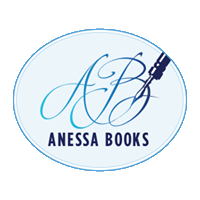 How many characters are too many?
How many characters are too many?
I always wonder that when I’m writing. I love to fill my books with people. The fact that I write party scenes where there are supposed to be hundreds of people give me lots of opportunity to fill my books with secondary and tertiary characters. I’ve got walk-ons galore!
But how many is too many?
Well, if you are not able to keep them straight, there’s a good chance your reader won’t either. How’s that for a rule of thumb?
My last series was about eight women who gathered every week to play cards. Naturally, each one had a spouse or got one. They also had other family members and friends. By the end of the nine-book series, I had a list of characters two pages long and those were just the main characters! On top of that were recurring supporting characters – the gossip, a maid, butler, somebody’s mother, or just other party-goers who can always be counted on for a dance. I had well over fifty characters. Some were names my readers should have known pretty well by the time they finished reading all nine books, others were one-offs who came and went on the page without making any sort of impression or needing to be remembered.
And how do you know how much you need to reveal about character? How much does your reader need to know?
When I first started writing I was told that every character, even the street sweeper who the heroine passes on her way should have a goal and I should know what it is. Well, goodness, if I knew what the goal of every single character was… well, wait a minute. Maybe I do know what their goal is.
It’s to sweep the street and then get to the pub as soon as possible, right? That random girl the hero dances with while he’s ogling the heroine? Her goal is to find a husband. Her mother, who the hero asks for permission to dance with the girl? Her goal is to get her daughter married.
So, yes, I probably do know what everyone’s goal is, even if it is something as simple and obvious as anyone could imagine. Is that good enough? Sure is! These do not need to be three-dimensional people. They come and go.
Yes, sometimes I have recurring characters who I make up stories about – sometimes in my head, sometimes those stories get written down and sent out in my monthly newsletter. But do I need to know everything about these characters? Nope. I really don’t. All I need to know is generally what they look like, why they are there, and how their presence is going to impact my protagonist or the story.
Now, naturally, for secondary characters who are going to make a significant contribution to the story, I’m going to need a lot more information. I might even do a very rough character sheet for them so that I know just a bit more about what they want and what they’re going to do to get it.
The thing is with these important secondary characters, the more you know, the more real, the more three-dimensional they’ll be. And once someone is more human, more life-like, the more likely it is that they could possibly become the protagonist of your next book. 😊
I love doing that and I do it all the time!
I will create a secondary character – the hero’s best friend, the heroine’s sister—to act as a foil for the protagonist and suddenly I realize that that character needs a story of their own. They become so very real to me that they end up becoming the protagonist of their own book.
Is this a bad thing?
Hell, no! It’s a great way to build a series.
Does it take a little bit more time to build these characters? Not much, actually. As you write them, put words into their mouths, they almost create themselves. Perhaps you’ll have to put a little bit of thought into them, but not much—not until they become the protagonist themselves and then you’ll delve deeply into their backstory and their wounds. But while they are simply a secondary character, you won’t need to know all that.
So create those secondary characters! Populate your books with loads and loads of people. Just don’t expect your readers to remember them and make sure all of their names are distinctive so they can’t be confused with anyone important who you do want your reader to remember. And have fun creating your world!
